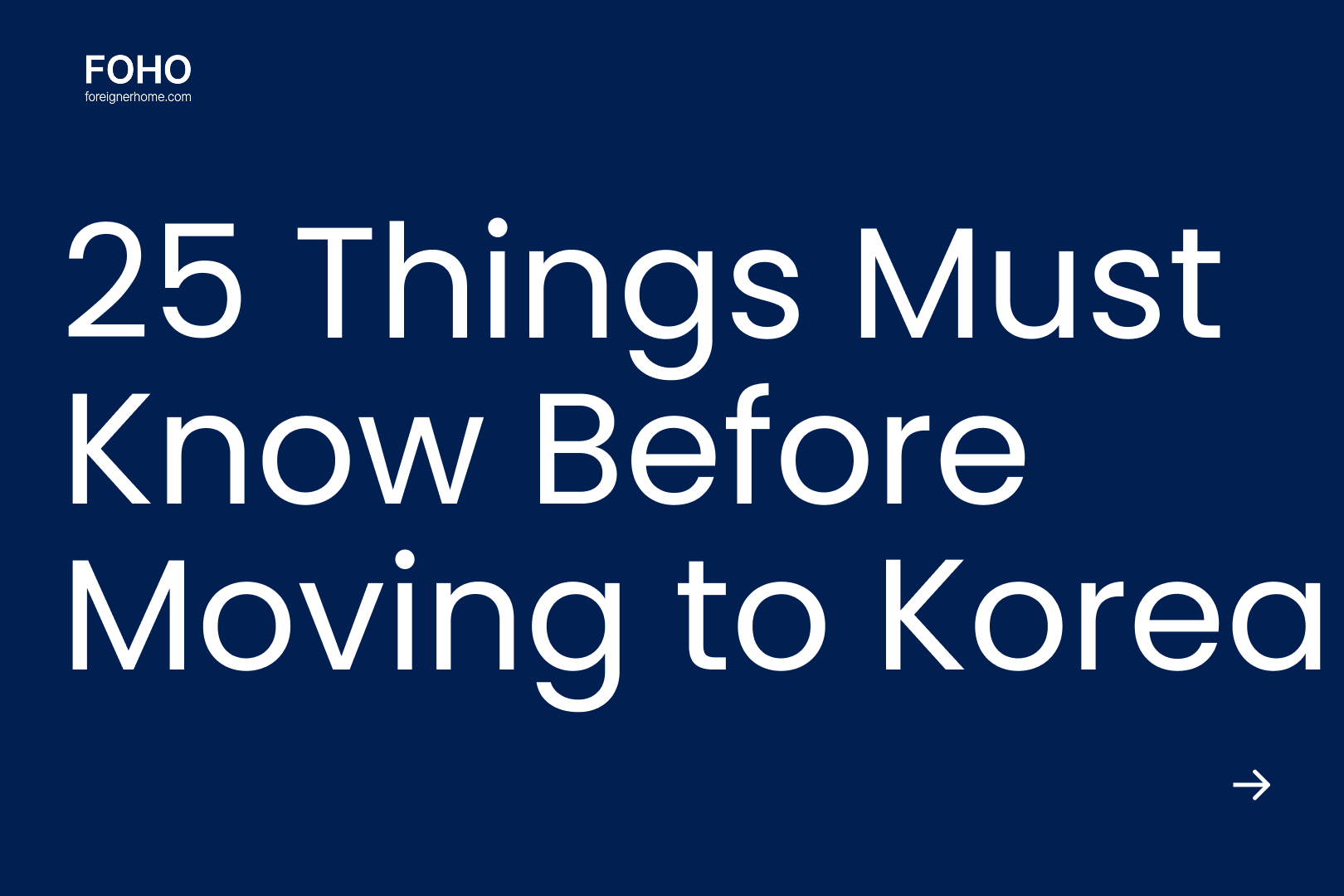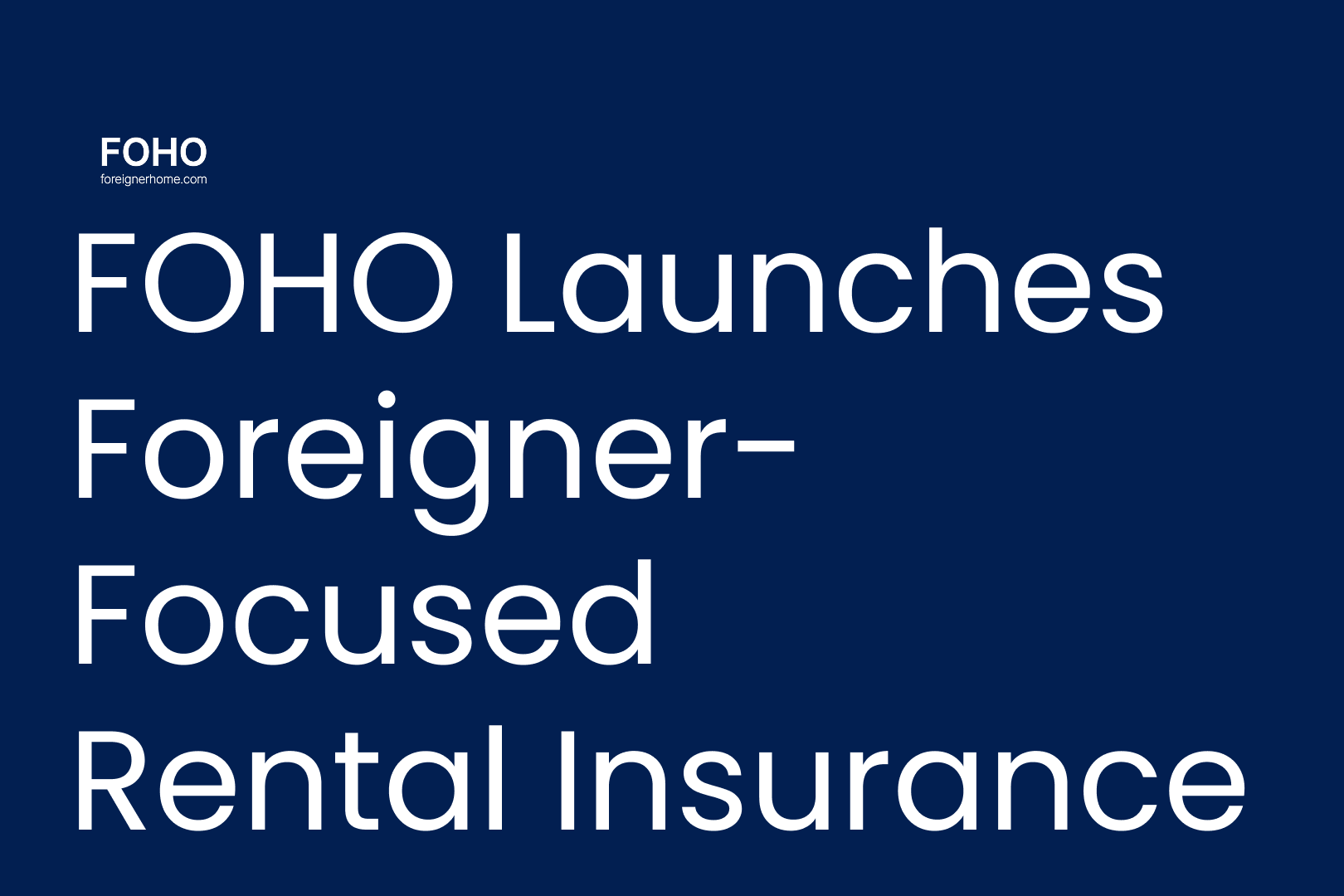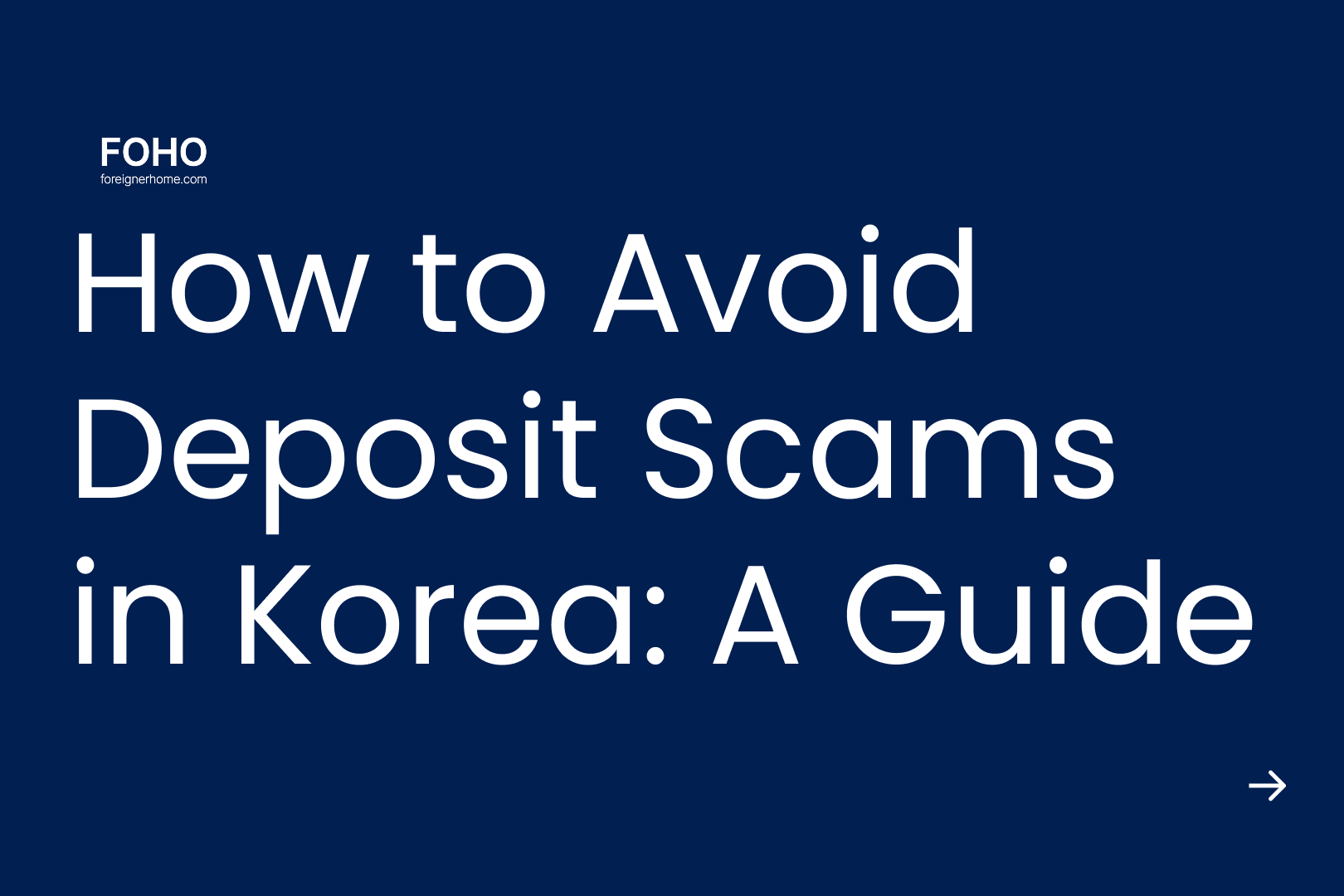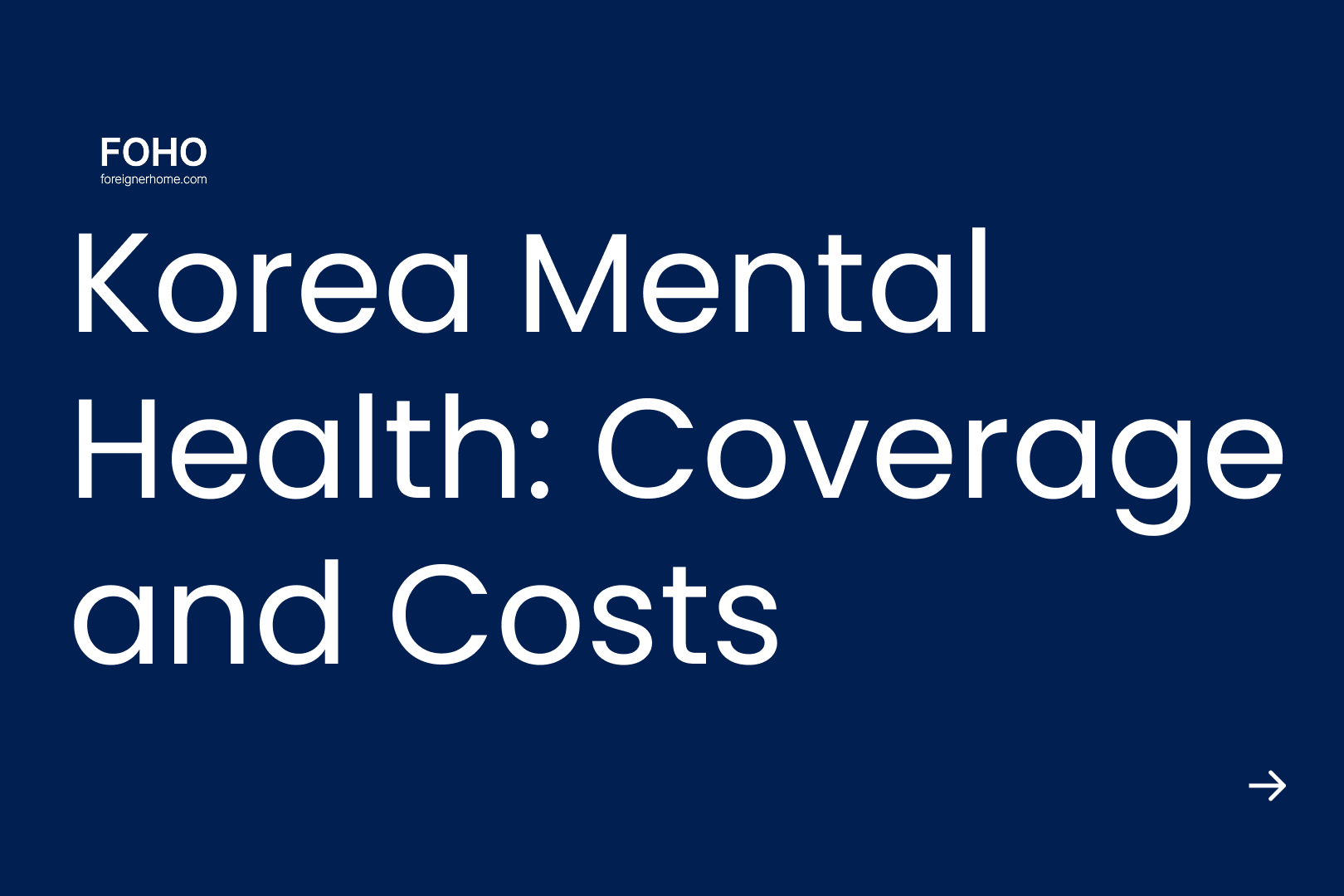FOHO Blog – Global Housing & Living Guide for Foreigners
25 Things Renters Must Know Before Moving to Korea (2025)
A no-fluff 2025 guide to renting in South Korea—jeonse vs wolse, deposits & lease registration, ARC, insurance, transit, etiquette, budgeting.

Table of contents
- 01Moving to Korea in 2025: A Practical, Renter-First Playbook (No fluff)
- •TL;DR — What most people wish they knew earlier
- •1) Renting 101 — How housing really works
- •2) Your first 10 days — An onboarding checklist that actually works
- •3) Money, phones, and the admin stack
- •4) Getting around (and loving it)
- •5) Healthcare without headaches
- •6) Everyday living hacks locals use
- •7) Eating well (including if you’re vegetarian/vegan)
- •8) Work & social norms that save you from awkward moments
- •9) Safety, scams, and staying wise
- •10) Sample monthly budget (solo, modest lifestyle)
- •11) What to pack (you’ll thank yourself later)
- •Mini-FAQ
Moving to Korea in 2025: A Practical, Renter-First Playbook (No fluff)
Plan like a local, arrive like you’ve lived here for years.This guide distills what actually matters for newcomers—housing, money, healthcare, transport, etiquette, and everyday hacks—so you don’t waste your first month fixing avoidable mistakes.
TL;DR — What most people wish they knew earlier
- Housing: Jeonse = huge deposit, low/no monthly rent. Wolse = smaller deposit + monthly rent. Register your lease and check the building’s debt before you hand over money.
- Docs first: ARC (alien card) → bank account → phone number. Many services won’t work without all three.
- Payments & apps: Cards are accepted almost everywhere. KakaoTalk, Kakao/Naver Map, and delivery apps run your life.
- Transit: Get a T-money card. Subways/buses are punctual, safe, and cheap.
- Healthcare: National insurance is mandatory after ~6 months. It’s affordable and high quality.
- Etiquette: Shoes off indoors. Keep your voice down on public transport. Be extra polite to elders.
- Bring: Your deodorant brand, multi-plug adapter, voltage-friendly electronics, basic meds, and a few “comfort” foods.
1) Renting 101 — How housing really works
Jeonse vs. Wolse at a glance
Item | Jeonse (전세) | Wolse (월세) |
Upfront deposit | Very large (often a significant % of property value) | Moderate (commonly a few million KRW) |
Monthly rent | None or very low | Yes (varies by area/size) |
Who chooses it? | Residents with cash savings, long-term stayers | Most newcomers & students/young professionals |
Risk & protection | Must verify title, liens, and register your lease | Same checks; deposit is smaller but still protect it |
Cash flow | Heavy upfront, light monthly | Balanced upfront + ongoing monthly |
Rule of thumbBigger deposit → lower monthly rent (on wolse). Negotiate both together.
Before you transfer a single won
- Verify ownership & liens. Ask your agent to pull the latest building registry (등기부등본).
- Register the lease at the local office promptly after signing.
- Time your move-in so utilities, internet, and the building fee are set from Day 1.
- Expect small spaces. Many studios are compact. Check storage, sunlight, and noise at different hours.
- Work with pros. A licensed agent (부동산) earns a capped fee and handles paperwork. If language is a worry, use an agent who regularly works with foreigners.
2) Your first 10 days — An onboarding checklist that actually works
Day | What to do | Why it matters |
1–2 | SIM/eSIM + temporary data; map out nearest immigration office | SMS codes are needed for banking, delivery, and apps |
2–3 | Residential address set; book ARC appointment | Your ARC unlocks banking, long-term plans, and insurance |
3–4 | Open a bank account (bring passport + ARC receipt if allowed) | Salary, bill pay, and transfers become simple |
4–5 | Transit card (T-money); learn your subway/bus lines | Cheap, fast, everywhere |
5–6 | Sign lease; immediately register it | Secures your deposit priority |
6–7 | Internet install; test speeds and router location | Walls can block Wi-Fi; check signal where you work/sleep |
7–8 | Utility setup (gas/heat), building fee details | Ondol heating & building fees vary—avoid surprises |
8–9 | Clinic/hospital near home; pharmacy hours | You’ll thank yourself the first time you catch a cold |
9–10 | Basic insurance questions (once eligible), emergency numbers in contacts | Peace of mind handled early = freer headspace |
3) Money, phones, and the admin stack
- ARC (Alien Registration Card): Apply within 90 days. Keep the receipt; some banks accept it to open accounts.
- Banking: International cards work, but a Korean bank account simplifies everything (rent, bills, online shopping).
- Mobile: Prepaid is fine for the first days; switch to a plan after ARC. Keep your number—many services tie logins to SMS.
- Bills: Expect a building management fee (cleaning, elevator, security; sometimes heating/water). Clarify what’s included.
CalloutMany government and utility sites offer English support; still, bring a Korean-speaking friend or your agent on key days. It saves hours.
4) Getting around (and loving it)
- T-money covers buses, subways, and even convenience stores in some cases.
- Apps: Use KakaoMap or Naver Map for accurate directions (Google is limited for navigation).
- KTX high-speed rail connects major cities efficiently.
- Taxi tips: Card accepted; tipping isn’t expected. Late nights are safe, but verify your destination on the screen.
Micro-etiquettePriority seats are sacred. Keep calls silent on trains/buses. Queue lines are real—follow them.
5) Healthcare without headaches
- National Health Insurance becomes mandatory after ~6 months on qualifying visas. It’s affordable and widely trusted.
- Pharmacies (약국): Common and efficient. Ask the pharmacist for over-the-counter options by symptom.
- Emergency: 119. For non-urgent care, walk-in clinics handle most issues quickly.
6) Everyday living hacks locals use
- Shoes off indoors. Always. Bring decent socks and consider indoor slippers.
- Laundry: Dryers are rare. A foldable rack + dehumidifier = faster drying in summer.
- Trash & recycling: Separate meticulously (paper, plastic, cans, glass, food waste). Your building posts instructions.
- Toilets: If there’s a bin beside the toilet and a sign asking not to flush paper, use the bin.
- Parcel life: Delivery is fast; lockers and convenience stores handle pick-ups/returns smoothly.
- Internet & power: Fast internet is standard. Korea uses 220V Type F—bring a universal adapter.
- Air quality: Check a daily AQI app. On bad days, a KF94 mask helps.
- Convenience stores: They’re mini-lifelines—SIM top-ups, late snacks, ATM, even bill pay in some cases.
7) Eating well (including if you’re vegetarian/vegan)
- Korean basics that adapt well:
- Bibimbap (ask for no meat/egg),
- Dolsot bibimbap (stone-pot; same request),
- Tofu stews (check broth),
- Banchan (side dishes; confirm seafood base),
- Temple food restaurants (naturally vegetarian).
- Phrases that help:
- “I don’t eat meat.” → 고기 빼 주세요 (go-gi bbae juseyo)
- “No fish/seafood, please.” → 해산물 빼 주세요 (hae-san-mul bbae juseyo)
Pro tipMany places are happy to adapt dishes if you ask kindly. City centers now have dedicated veg-friendly spots.
8) Work & social norms that save you from awkward moments
- Age hierarchy matters. Use polite language with seniors. Pour drinks for elders; turn your head slightly when sipping alcohol.
- Public volume: Keep conversations low on transit and in quiet spaces.
- After-work culture: Team dinners (회식) and karaoke rooms (노래방) are common. You’re free to bow out politely—do it early and kindly.
- Gifts: Small housewarming or thank-you gifts (fruit, snacks, or coffee cards) are appreciated.
9) Safety, scams, and staying wise
- Street safety: Very high. Late-night public transit is normal. Mind traffic more than crime.
- Housing scams:
- Be wary of cash-only deals and outlier prices.
- Always match the landlord’s ID to the property record.
- Register your lease—it protects your deposit priority.
- If something feels rushed or “too good,” walk away.
10) Sample monthly budget (solo, modest lifestyle)
This is a planning tool, not a quote. Real numbers vary by district, size, and lifestyle.
Category | Range (KRW) | Notes |
Rent (studio, outer-to-inner city) | 600,000–1,400,000 | Deposit affects rent; newer/central = higher |
Building fee (관리비) | 70,000–150,000 | Security, cleaning; sometimes includes heating/water |
Utilities (electric/gas/water) | 60,000–120,000 | Winter gas can spike with floor heating |
Mobile & internet | 40,000–80,000 | Family/long-term plans can lower this |
Groceries & dining | 300,000–600,000 | Local eateries cheaper; Western imports pricier |
Transport | 50,000–90,000 | Heavy subway/bus usage with T-money |
Health & pharmacy | 30,000–60,000 | Routine needs; insurance reduces clinic costs |
Leisure/misc. | 150,000–300,000 | Clothes, cafés, small trips |
Estimated total | 1.3M–2.8M | Conservative outer-to-inner city spread |
11) What to pack (you’ll thank yourself later)
- Deodorant & personal care you love (harder to find/expensive).
- Universal adapters and a small power strip.
- Documents: certified copies, passport photos, international driving permit (if needed).
- Comfort foods/spices for homesick days.
- Quality walking shoes (you’ll walk a lot).
- Layering clothing for four true seasons; compact umbrella for summer rains.
Mini-FAQ
Make Your First Lease in Korea Low-Risk with FOHO
- Verified listings only, with fraud checks before you waste time.
- Escrow-style deposit & rent support—money moves only when agreed conditions are met.
- Clear landlord coordination (KR/EN) so details don’t get lost.
- Move-in checklist & reminders (lease registration, utilities, internet) so you don’t miss steps.
- Receipts and history for every payment—simple and organized.
Settle in faster with FOHO
Browse more verified listings and message landlords in minutes. Lock in your lease with FOHO's secure payments.
Get Foreigner-Friendly Housing Tips
Get the latest news delivered to your inbox.

Nov 4, 2025
FOHO Launches Foreigner-Focused Rental Insurance
FOHO’s deposit insurance protects foreign tenants in Korea from landlord defaults. Stay safe with clear coverage and fast claims.

Oct 31, 2025
How to Convert E-9 Visa to E-7-4 in Korea
A guide for Vietnamese & Chinese E-9 workers in Korea. Learn the E-7-4 visa points system, F-2 requirements, and compare GME vs. Sentbe for remittance.

Oct 30, 2025
How to Avoid Deposit Scams in Korea: A Guide
Avoid deposit scams in Korea with our step-by-step guide. Learn to check property debt, understand the 'Deung-gibu,' and secure your deposit.

Oct 29, 2025
Korea Mental Health: NHIS Coverage and Costs
Get help with mental health in Korea. This guide for foreigners explains how to use NHIS, find low-cost options, and get medication prescriptions locally.
Subscribe to the FOHO newsletter
Actionable housing insights in your inbox.